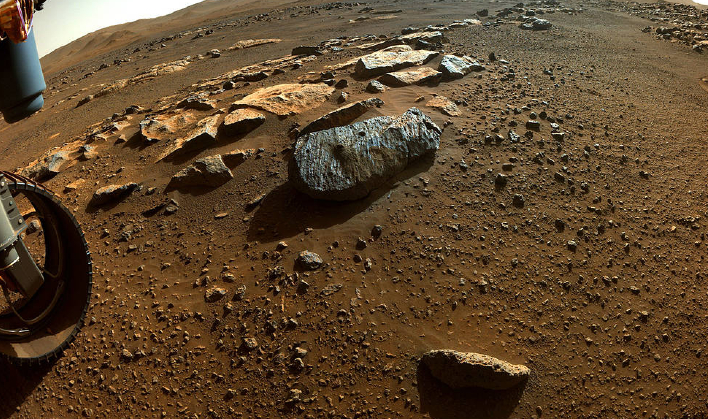NASA's Plan To Bring Samples From Mars Back To Earth Is Freaking Some People Out
The Perseverance rover has been busy since landing on the surface of the Red Planet. One of its objectives has been to collect samples to later be brought back to Earth for study. NASA held two virtual public meetings about the proposed program back in May of this year, in order to inform the public of its plans and to receive feedback. It seems that there are some who have some concerns surrounding the retrieval of the unsterilized samples.
The space agency's plan will include the launch of another spacecraft to travel to Mars for retrieval of the samples. Once the samples are secured, it will then travel back to Earth where it will drop the samples somewhere in Utah. At that point, the samples will be delivered to a yet-to-be built facility. All of this is scheduled to take place by 2033.
Once at the new facility, scientists will begin studying the Martian soil for microbial life from about 35 samples weighing around 1 pound in total. Along with hopes of finding signs of life from Mars, scientists also hope to gain a better insight and understanding of the Red Planet's geology and climate. This information will also be used for preparations to one day send humans to explore Mars.

"We also believe this to be the next logical step in our quest to eventually land humans on the surface of Mars," Thomas Zurbuchen, an astrophysicist and head of science at NASA, stated during the public presentation back in May. Zurbuchen believes the samples that have been collected from the ancient river delta Jezero "are thought to be the best opportunity to reveal the early evolution of Mars, including the potential" for life.
The potential of finding life on Mars, while exciting, may not be enough for some who are still beaten down from the recent pandemic to get on board. They wonder if the samples could present even a remote possibility of something contained in them presenting a biohazard. Worries have also been expressed surrounding the efforts of China, who has announced a similar project, as well as private companies, such as SpaceX, not having nearly as rigorous protocols in place as those of NASA. Especially when even NASA cannot say with 100% certainty that it won't bring back something that presents a danger to humans.
One commenter said, "NASA should NOT bring back samples from Mars until we know more about how said samples will impact our safety on this planet. Test first for possible bacteria that will adversely affect our health."
Thomas Dehel, a retired from the Federal Aviation Administration, added, "We won't know if it's sterile or not. That's my biggest point. We should know if we bring something back to Earth whether it's sterile or not, to do some sort of crude test up front to see if there's any kind of biological life."
What are your thoughts on samples from the surface of Mars being brought back to Earth for study? Do you feel it would be safe to do so if done in the right way, or are you fearful that there is no way to safeguard against something we have yet to discover? Let us know in the comments.
Top Image Credit: NASA/JPL

